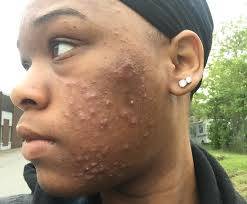How to Prevent Acne
Introduction:
Acne, a common skin condition affecting millions worldwide, can be both physically uncomfortable and emotionally distressing. From teenagers to adults, acne doesn't discriminate based on age or gender. However, the good news is that preventing acne is possible with the right knowledge and habits. In this comprehensive guide, we'll delve into the causes of acne, explore various prevention methods, and provide practical tips for achieving clear and radiant skin.
Understanding Acne:
Before delving into prevention strategies, it's crucial to understand what causes acne. Acne typically occurs when hair follicles become clogged with oil and dead skin cells. This creates an ideal environment for bacteria to thrive, leading to inflammation and the formation of pimples, blackheads, and whiteheads. Several factors contribute to the development of acne, including:
1. **Hormonal Changes:** Fluctuations in hormone levels, particularly during puberty, menstruation, pregnancy, and menopause, can trigger acne outbreaks.
2. **Genetics:** Family history plays a significant role in determining an individual's susceptibility to acne. If your parents or siblings had acne, you're more likely to experience it too.
3. **Diet:** While the link between diet and acne is still debated among experts, certain foods, such as high-glycemic-index carbohydrates and dairy products, may exacerbate acne in some individuals.
4. **Stress:** Chronic stress can worsen acne by increasing the body's production of cortisol, a stress hormone that stimulates oil production in the skin.
5. **Poor Skincare Habits:** Using harsh or comedogenic (pore-clogging) skincare products, inadequate cleansing, and excessive scrubbing can aggravate acne.
Now that we've explored the causes, let's delve into effective strategies for preventing acne:
1. **Maintain a Consistent Skincare Routine:**
Establishing a regular skincare routine tailored to your skin type is essential for preventing acne. This routine should include gentle cleansing, exfoliation, moisturizing, and sun protection. Opt for non-comedogenic products that won't clog pores and avoid overwashing, which can strip the skin of its natural oils, leading to increased oil production.
2. **Keep Your Skin Clean:**
Proper cleansing is crucial for removing excess oil, dirt, and dead skin cells that can clog pores and contribute to acne. Wash your face twice daily using a mild, non-abrasive cleanser. Be gentle and avoid scrubbing vigorously, as this can irritate the skin and worsen acne. After sweating, such as after exercising, promptly cleanse your skin to prevent sweat from mixing with oils and clogging pores.
3. **Moisturize Regularly:**
Contrary to popular belief, moisturizing is essential for all skin types, including oily and acne-prone skin. Look for oil-free, non-comedogenic moisturizers that hydrate the skin without clogging pores. Proper hydration helps maintain the skin's barrier function, preventing excessive oil production and reducing the risk of acne.
4. **Exfoliate Weekly:**
Exfoliation helps remove dead skin cells and unclog pores, preventing acne breakouts. However, it's essential to exfoliate gently to avoid irritating the skin. Choose a chemical exfoliant containing ingredients like salicylic acid or glycolic acid, which are effective for acne-prone skin. Limit exfoliation to once or twice a week to prevent over-exfoliation, which can damage the skin's protective barrier.
5. **Use Non-Comedogenic Products:**
When selecting skincare and makeup products, opt for non-comedogenic formulas labeled as oil-free or non-acnegenic. These products are specifically designed not to clog pores, reducing the risk of acne breakouts. Additionally, avoid heavy or greasy products that can exacerbate acne and opt for lightweight, breathable formulations.
6. **Practice Sun Protection:**
While sunlight can temporarily improve acne symptoms by drying out excess oil, prolonged sun exposure can worsen acne and cause skin damage. Protect your skin by wearing a broad-spectrum sunscreen with an SPF of 30 or higher daily, even on cloudy days. Choose oil-free, non-comedogenic sunscreens formulated for acne-prone skin to prevent clogged pores.
7. **Manage Stress:**
Chronic stress can trigger acne flare-ups by increasing inflammation and oil production in the skin. Practice stress-management techniques such as deep breathing, meditation, yoga, or regular exercise to help reduce stress levels and improve overall skin health. Adequate sleep is also crucial for managing stress and promoting skin regeneration.
8. **Maintain a Healthy Diet:**
While the relationship between diet and acne is complex and varies among individuals, adopting a balanced diet rich in fruits, vegetables, whole grains, and lean proteins can support skin health. Limit your intake of high-glycemic-index carbohydrates, sugary foods, and dairy products, as these may exacerbate acne in some people. Stay hydrated by drinking plenty of water to flush out toxins and keep your skin hydrated from within.
9. **Avoid Touching Your Face:**
Touching your face with dirty hands can transfer bacteria, oil, and other impurities to the skin, leading to acne breakouts. Avoid touching your face unnecessarily and refrain from picking, popping, or squeezing pimples, as this can cause further inflammation, scarring, and bacterial spread.
10. **Consult a Dermatologist:**
If over-the-counter acne treatments and preventive measures aren't providing relief, consider consulting a dermatologist. A dermatologist can assess your skin condition, prescribe appropriate medications or treatments, and offer personalized advice for managing acne effectively.
Conclusion:
Preventing acne requires a combination of good skincare habits, a healthy lifestyle, and personalized treatment approaches. By understanding the underlying causes of acne and implementing preventive strategies such as maintaining a consistent skincare routine, keeping your skin clean, moisturizing regularly, and managing stress, you can minimize acne breakouts and achieve clear, healthy skin. Remember that consistency is key, and it may take time to see significant improvements. If acne persists or worsens, don't hesitate to seek professional help from a dermatologist who can provide tailored solutions to address your specific skin concerns. With dedication and patience, you can take control of your acne and embrace a clearer, more confident complexion.




No comments yet
Be the first to share your thoughts!